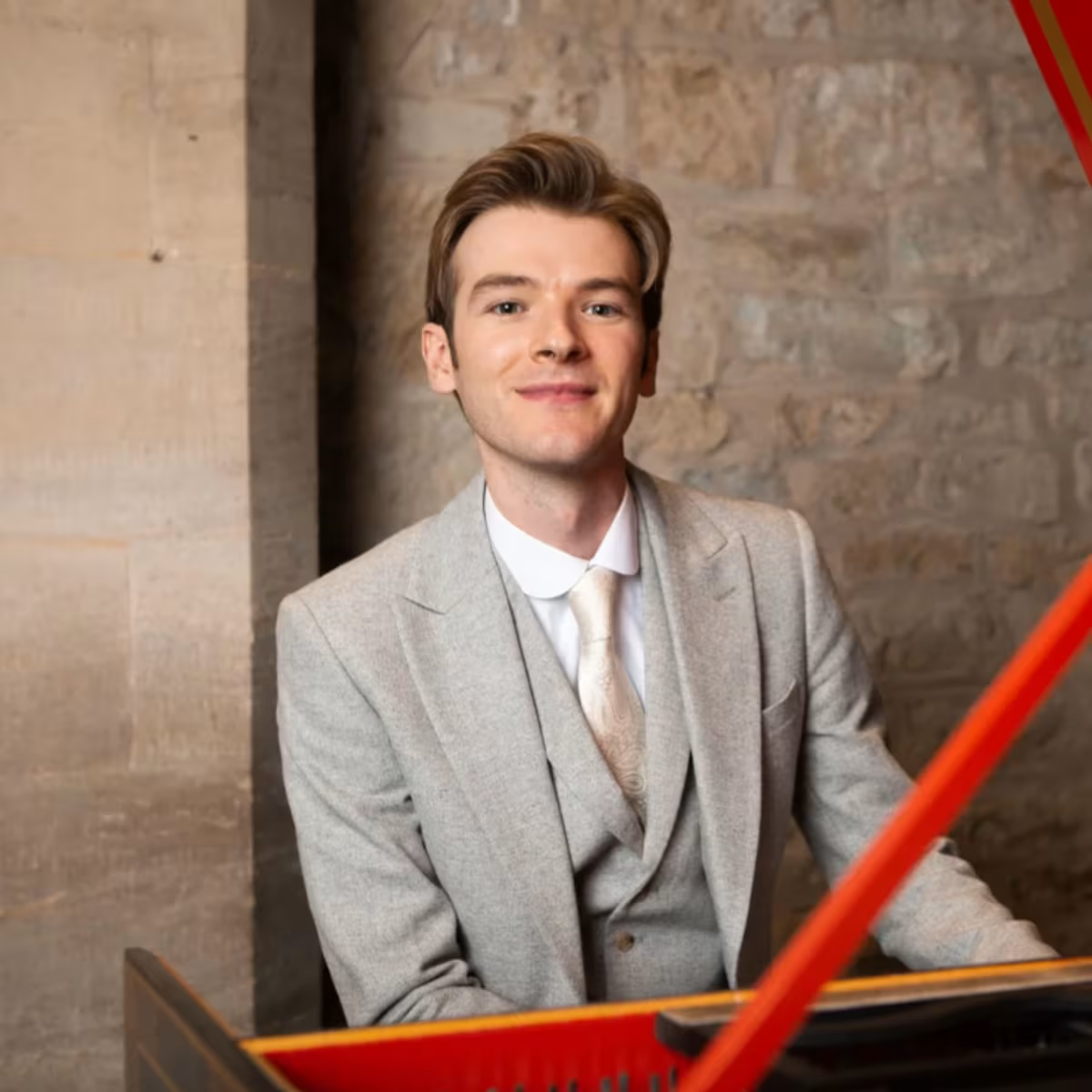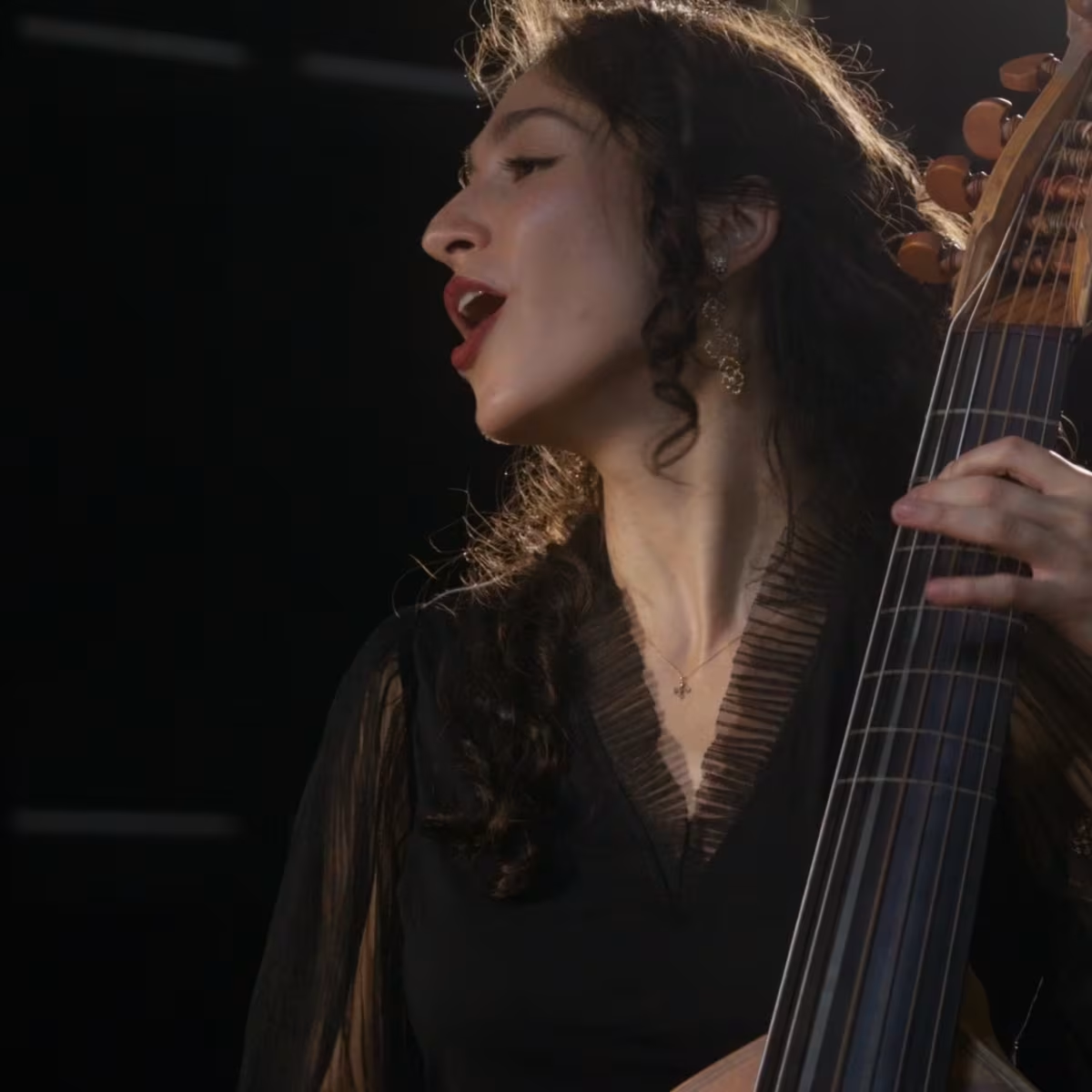Feature
Leon Bosch: Champion of the Neglected
Share this

FIRST PUBLISHED 03 NOV 2024
Johannes Matthias Sperger (1750–1812) is not a name that many outside a very niche quarter of the musicological world know much about, if they have heard of him at all. He came from a small town, Feldsberg (now Valtice) on the Moravian-Austrian border and, while reasonably well known in Vienna, spent most of his life in minor Austrian aristocratic households. Perhaps if he had been a great violinist or fortepianist, his stock would have risen higher, in his own time and ever since. However, he was not. His instrument was the double bass.
Now, after a long career of being fascinated by this obscure figure, the conductor and fellow bassist, Leon Bosch, is trying to tip the balance in Sperger's favour. “He was known about, but nobody really bothered to play his symphonies and concertos (and there are 18 for the double bass). They didn't care. I had heard a recording in the '80s of one of his sonatas. Then, while I was studying at the RNCM, I met Klaus Trumpf, who was trying to popularise Sperger but was also trying to escape East Germany at the time.” Trumpf was the Principal Double bass of the Staatskapelle Berlin Orchestra until he moved to the West as soon as he could, after the fall of the Berlin Wall. Now in his eighties, he was the founder in 2001 of the Sperger Society.
“Then,” remembers Leon, “one of Sperger's sonatas was a test piece for the 1982 Isle of Man double bass competition.” That extraordinary festival was started in Port Erin by Rodney Slatford and the indefatigable John Bethell and had become instantly famous four years earlier when 48 bassists had thronged the harbour to play Saint-Saëns' The Elephant, conducted from the water by Bethell on an inflatable. By 1982 it had become as important to bassists as the TT Races are to motorcyclists.
Bosch is keen to carry on Trumpf's evangelistic work of reviving the composer's reputation but points out that Sperger is not just important for his own music. “Sperger is also known to bassists because he was a copyist. Both of the Dittersdorf concertos that survive are in his hand, and I'm hoping to find a copy by him of Haydn's lost concerto for double bass.” That will take considerable further research and funding, but Leon has already recorded the complete Dittersdorf double bass works with the Academy of St. Martin-in-the-Fields, of which he was Principal for nearly twenty years.
“I have been discovering the symphonies for a long time,” Bosch continues. “Haydn wrote The Farewell, Sperger composed one called The Arrival, but there are at least forty more that have never been recorded, as well as an enormous number of other works. There is a thematic catalogue by Adolf Meier, and Klaus Trumpf connected me with a library in Mecklenburg that has a lot of Sperger's work. I'm lucky to have an ex-student, Carl Hinde, with whom I've been working for 40 years, who is a forensic musicologist, and has been helping me reconstruct performing editions.”
“More recently, I have been teaching the concertos to my students at Trinity Laban. I'm getting together a selection of his other concertos for cello, viola, flute, and bassoon. It's an enormous project. Here is a near contemporary of Haydn who is just as good, if not better in some cases. I'm hoping to record all the concertos for Somm Recordings with the London Mozart Players, and the complete symphonies with the Hanover Band.” The first stage of the project was to give Sperger's Cello Concerto its official first London performance, with Sebastian Comberti as soloist, in a concert on 23 February 2025 at King's Place.
The programme also includes Haydn's Philosopher Symphony, No. 22, and works by Cimarosa and Mozart. “It is my first time directing the Hanover Band, and my first foray into working with a period instrument ensemble. So far, I've always worked with modern orchestras, though I have experimented with a baroque bow and teach the technique.” While Bosch is intending to record the concertos, along with the Concertante Symphony which has obligato cello, on modern instruments, for the symphonies he will turn to period instrument versions. He is in negotiations with Naxos to launch a 15-CD, 5-year project with the Hanover Band.
Apart from his passion for Sperger's music, there is another deep-rooted part of Bosch's life that gives him a much wider perspective on the place of music in global affairs, especially the relationships between Africa and Europe. He grew up in South Africa, where his father Jonas Fred was a committed activist against the apartheid regime. While still at school, Bosch also organised protests. “I was arrested as a teenager in 1976 during protests around the Soweto Uprising. As a result, I was not allowed to study law, so I turned to music and studied cello, then double bass.” He then sought refuge in Britain, where he continued his studies at the Royal Northern College of Music in Manchester. As well as mastering the music, he gained a post-graduate degree in international relations.

Though he still lives in Britain and has been a UK citizen since 2000, “I went back to South Africa after apartheid.” The connections with Africa are still strong and are getting even stronger as he develops his conducting work. He has coached the South African National Youth Orchestra and worked with MIAGI, an orchestra whose acronym stands for Music Is A Great Investment. He is principal double bass of the new Mzansi National Philharmonic Orchestra and has conducted the KwaZulu-Natal Philharmonic Orchestra as well as the Free State Symphony Orchestra and the Eastern Cape Philharmonic Orchestra. Next year he will conduct the Cape Town Philharmonic, his hometown orchestra. He finds he now spends a few weeks there each year, in two-week stints. “My big ambition is to bring the Cape Town Philharmonic Orchestra to the BBC Proms for the 50th anniversary of the Soweto uprising in 2026.”
In 2019, Shane Woodborne, a fellow South African living in Europe, composed Red Ink, a concerto for double bass and string orchestra in memory of Hector Peterson (the first victim in the Soweto uprising). Red Ink was premiered at the Diabelli Festival in 2019 with Camerata Salzburg, of which Woodborne has been a cellist for over thirty years.
Playing the double bass might be described as a semi-sedentary occupation. As with everything else in his life, Leon Bosch has countered that with energy and determination. In addition to his musical achievements, he took up marathon and even ultra-marathon (the daunting extension of the sport beyond 26 miles) running. “I was racing regularly until lockdown but,” he admits, “I lapsed then and disconnected with my coach, though I still run.”

The musical achievements, however, continue unabated. Most recently, Bosch has been awarded the 2024 William Wilson Cobbett Medal by The Musicians Company. He is the first double bass player and the first Black musician to receive the award since it was founded 100 years ago in 1924.
Author: Simon Mundy
Share this
Keep reading

Harpsichord Masterclass Series with Nathaniel Mander
Take your early keyboard playing to the next level with this 16-part online masterclass series led by international harpsichordist, Nathaniel Mander.

Bellot Ensemble | Strozzi: Amor dormiglione
Barbara Strozzi’s ‘Amor dormiglione’ is one of her most beguiling and subtly witty arias, a gently teasing address to Cupid himself.

Carnival spirit at The Vache
Ashutosh Khandekar reviews Vache Baroque’s recent production of ‘Le carnaval de Venise’ by André Campra.


